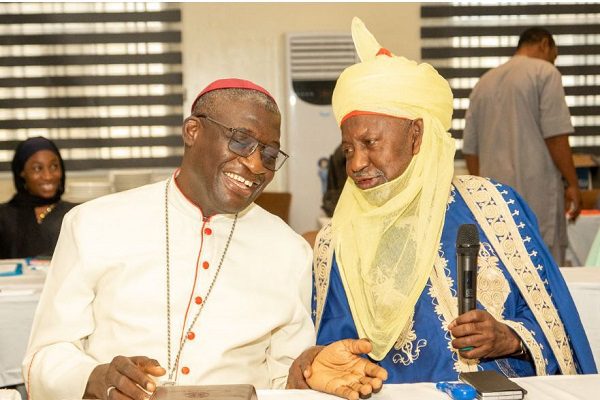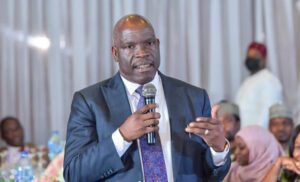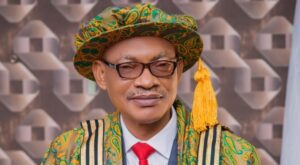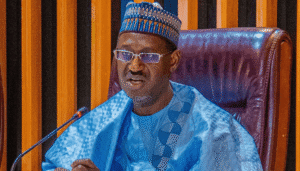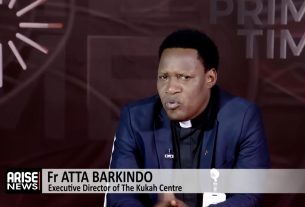•North in cultural revolution over young women’s health
•Religious, traditional rulers champion move for eradication of unhealthy reproductive practices
In the heart of northern Nigeria – where faith guides life’s rhythm and culture defines community – change often begins not in government secretariats, but in the quiet words of an Imam, the solemn counsel of a Sheikh, or the gentle sermon of a Bishop. In this deeply traditional society, the words of religious and cultural leaders carry more weight than any law or policy. They are the moral compass of their people, shaping beliefs, guiding behaviour, and defining what is right and acceptable.
Faith and cultural leaders have become effective agents of change towards improving the health and well-being of adolescent girls and young women in northern Nigeria. Now, these same faith and cultural voices are rising to champion a cause long overshadowed by silence – the health and well-being of adolescent girls and young women.
Founded around 1000 AD, populous and historic Kano Emirate – the heart of today’s Kano State – long achieved great significance during the trans-Sahara trade, particularly from the 14th to 17th centuries, remaining a major commercial, political and Islamic centre. It embraced Islam in the 11th Century and between the 14th to 17th centuries; it achieved prominence as a major trading hub along the trans-Saharan routes. On the other hand, Kaduna, the epicentre of Arewa politics, has remained significant since Nigeria’s pre-independence days when the colonial administration and later, Sir Ahmadu Bello governed much of the entire northern parts of Nigeria from there. Together, Kano and Kaduna can be compelling pedestals for the diffusion of developmental innovations across the northern states.
Championing change through a transmutation of historical realities of tradition and religion is a novel and very potent idea weaved into making the Advisory Faith and Cultural Champions (AFCC) project, now being implemented by the Centre for Communication and Social Impact (CCSI). Focussed primarily on Kano and Kaduna states with predictably high chances of diffusing its innovative impacts much farther afield, the AFCC project is rewriting the narrative. The initiative seeks to leverage the extraordinary influence of traditional and religious leaders to dismantle harmful social norms that have, for decades, endangered women’s lives.
In recent times, one of the well-reported inter-faith platforms in the North evolved as an agenda to restore trust and quell the divisive effects of the Year 200 ethno-religious crisis. Now, AFCC is settled on a firmer, beneficial cause that can impact generations.
Northern Nigeria’s communities have long battled high maternal and child mortality rates – outcomes fuelled not only by poverty but by cultural and religious misinterpretations. Among these are the reluctance to give birth in hospitals, limited access to child spacing services, and the silence that clouds communication between young wives and their husbands on reproductive health matters.
Yet, many of these practices, long believed to have religious backing, are in fact cultural distortions with no scriptural support. Recognizing this, faith and cultural leaders under the AFCC initiative are stepping forward to correct these misconceptions using the most powerful tool at their disposal: religious truth.
When the pulpit meets the people at critical points, reflections evolve into new ways of doing things. On a Friday afternoon in Kano, a journalist, Sadiq Ibrahim, recalled how Sheikh Ibrahim Khalil, Chairman of the Kano Council of Ulamas, delivered a sermon that departs from the familiar and excellently resonates with development thinking. “His message this time is not just about prayer and charity but about the sanctity of life in childbirth. He draws attention to the fact that Islam teaches that preserving life is a duty. He emphasises that contrary to the old ways of some of our people, seeking skilled medical care during pregnancy is not a sin – it is obedience to Allah’s command to protect life.”
Across Kaduna, Bishop Esther Yahwe, Vice Chairman of Advisory Faith and Cultural Champions and leader of the Women Wing of the Christian Association of Nigeria (CAN), echoes a similar conviction: “God delights in wisdom and care. When a mother chooses a safe delivery, she honours the Creator who gave her the child.”
Such voices are reshaping conversations from mosque pulpits to church altars, replacing harmful silence with informed compassion.
Indeed, across much of the Nigerian federation, scripture and culture harbour potent powers of mass persuasion. To reach deep into the hearts of their people, the AFCC project has armed these leaders with resources grounded in both faith and culture. Using Islamic and Christian scriptures, alongside indigenous proverbs that celebrate health and family well-being, the leaders are crafting messages that resonate at every level of society – from the Emir’s palace to the family compound.
Their targets are not just the young women themselves but also the men and elders who influence them – the husbands who decide, the mothers-in-law who advise, and the community heads who permit or forbid.
Dr. Bello Abdulkadir, the Salanken Zazzau and Chairman of the Kaduna State Traditional Council Committee on Health, explains it aptly:
“Change in our society must begin with those who command respect. When an Emir or Imam speaks with conviction, the people listen. That is the power of tradition harnessed for good.”
Taking the message beyond transient words has become important. Beyond sermons and palace meetings, the AFCC project is using innovative communication methods to reach even the most remote communities. From Friday khutbahs and Sunday sermons, to radio discussions in Hausa and community dialogues, messages about maternal health, child spacing, and respectful marital communication are spreading steadily.
In compounds and village squares, young mothers gather under the trees to listen to health educators and midwives, joined by mothers-in-law who once resisted “modern medicine.” Now, they nod approvingly as religious evidence aligns with cultural wisdom. The tide is turning!
The effort pragmatically extends to policy corridors: it is very realistic to appreciate that advocacy does not end in the community. Recognising that demand for services must be matched with availability and quality, faith and cultural leaders under the AFCC project are also engaging policymakers at state and local levels. They push for better-equipped primary healthcare centres, respectful maternity care, and access to contraception for those who need it.
Their efforts also include advocating for more inclusive services – such as antenatal classes that incorporate sign language and accessible facilities for persons with disabilities.
Dr. Basheer Muhammad, the Dankaden Kano and Chairman of the Kano Emirate Council Committee on Health, notes that this kind of holistic advocacy “bridges the sacred and the secular – faith speaks, and policy listens.”
In the end, this movement spawned by CCSI’s Faith and Cultural Champions (AFCC) project is about more than health – it is about dignity, understanding, and reclaiming the essence of compassion embedded in both religion and culture. Northern Nigeria’s faith and traditional leaders are proving that real transformation begins when spirituality meets social responsibility.
Truly, civil society organisations’ focused efforts can positively impact the developmental aspirations of government and citizens and self-effacing development activist, Mrs. Babafunke Fagbemi, the Executive Director, Centre for Communication and Social Impact concurs.
“CCSI feels privileged to partner with our esteemed Faith and Cultural Leaders on the FCC project; our footprint in this ecosystem across the country over the years has provided invaluable insights that have shaped and deepened the incredible and priceless influence of these leaders and their impact in shaping people’s behaviours around social norms.
“We are proud as they lead and drive organic activities and engagements in communities towards improving the health and well-being of adolescent girls and young women in Kano and Kaduna,” she stated.
For too long, young women have borne the burden of misinterpreted customs and neglected healthcare. But now, from the mosques of Kano to the churches of Kaduna, the message is clear: faith supports life, and culture must nurture it.
If sustained, the AFCC project’s model could become a blueprint for other region – showing that the voices that once upheld tradition can now be the very voices that liberate it. Because when faith and culture stand together for life, no girl, no mother, and no woman should ever have to die giving birth to hope.

